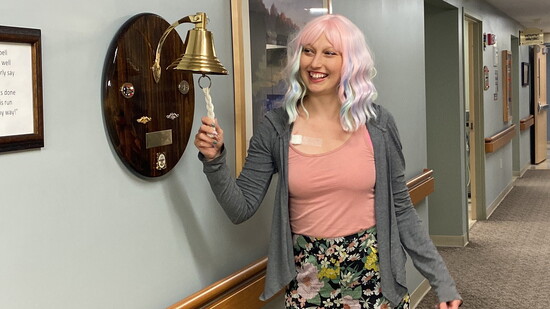In 2005, one woman’s personal account of her breast cancer journey became a nexus of community building. From her online journal, “Bald Wendy,” New Hampshire resident and breast cancer survivor Wendy McCoole developed BreastCancerStories.com, a space where individuals who had been diagnosed with breast cancer could share their experiences and make connections with others. People from around the world were drawn to the site, illustrating the value of its support and spotlighting the physical, emotional, and logistical burden of cancer on individuals and their communities.
Six short years later, it became clear that a new initiative was imperative, and My Breast Cancer Support was born. Led by Executive Director McCoole, the organization focused its mission on addressing non-medical barriers to care that individuals with breast cancer were facing: transportation costs, housing and utility bills, food insecurity.
As visibility and interest increased, My Breast Cancer Support’s board grew robustly with fiercely dedicated folks who joined the cause. Jennie Halstead, also a breast cancer survivor and a business owner at the time, was drawn to the nonprofit organization’s mission. After making a donation and participating in a 5k fundraiser, she joined the board in 2012, and soon after became Program Administrator in charge of fulfilling patient grants. By 2014, McCoole had recommended that Halstead take on the role of Executive Director, and Halstead gratefully accepted. She continues to lead the organization today. “This work is so healing for me,” she says. “Things present and unfold as they should. I don’t do a job; I just do what I do.”
New Hampshire has the sixth-highest breast cancer rate in the country, creating a vulnerability that My Breast Cancer Support aims to ease. Halstead and her strong team partner with cancer centers and hospitals in southern Maine and on the Seacoast. In particular, they work with nurse navigators, social workers, and financial advocates to recognize resource gaps and identify those individuals in need.
At the heart of the organization’s mission are compassion and flexibility. Board members are keenly aware that patients’ and caregivers’ fears go beyond health and medical care—they also worry about how they will manage the other costs associated with care.
Help from My Breast Cancer Support is immediate and ongoing. Every participating cancer center gives new patients a My Breast Cancer Support gift bag that contains a journal, information about local resources, a water bottle, lip balm, hand lotion, and a scarf from the nonprofit organization, Hope Scarves. Says Halstead, “It’s meant to be a handshake or a hug. We get you. We’re here if you need us. You’re not alone.”
Each center also has a “Hope Chest” rich with gift cards to cover necessities like gas and groceries. And grant funding addresses transportation services and alleviates the financial stressors of day-to-day living.
As gas prices have increased, so have transportation grants. The application process is easy, and aid comes quickly. “We try to keep it simple,” explains Halstead. “If the nurse navigator says someone needs help, we grant the grant.” My Breast Cancer Support donates 500 gift bags, 150 gas grants, and 140 general grants each year.
Working with stakeholders in cancer care has also opened a door for My Breast Cancer Support to extend a hand to those who experience vicarious trauma. By meeting with staff of local cancer centers, they have learned that clinical workers and advocates—beyond identifying where there is need—share insight on how those on the front line of care may be suffering.
In October 2024, My Breast Cancer Support formed the Coalition of Front-Line Breast Care Teams, with the goal of pooling resources, bringing the wisdom of stakeholders together in a unified conversation, and most importantly showing those who give care that they, too, are not alone.
“The stories of those impacted by breast cancer are heart-wrenching,” reflects Halstead. “We want to create a community. There is a closeness and a separateness, but there is an invisible thread that connects us.” She tells the story of Danielle Festa, an artist, whom she met at a networking event. They talked, and Halstead gave her a card. Within a couple of months, Festa was diagnosed with breast cancer and reached out for support. “That kind of thing happens all of the time,” Halstead says. “It’s a universal intervention, that crossing of paths. Danielle knew just what her next step would be after her diagnosis, and we were there.”
That intimacy of connection, which My Breast Cancer Support has preserved from its inception, is vital. Halstead and her team find themselves regularly on the telephone with patients who have reached out for support, and there, in those voice-to-voice moments, patients have precious opportunities to exchange stories with someone on the line who can understand. “There are things you might not be able to say to family members or friends,” Halstead says. “Conversations that you want to have that are too hard for them to hear.”
Halstead adds, “It’s a privilege to hear the edges of humanity in these fringes of pain and human experience. It’s okay not to be okay, but there is also a knowing that you will be.”
